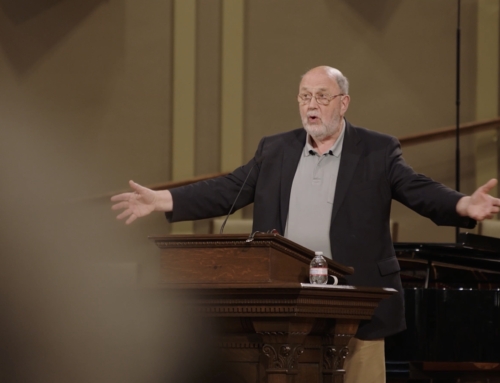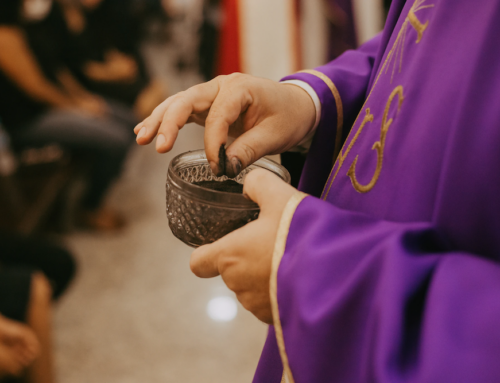Ethnicity, Justice, and the People of God is the tenth N. T. Wright Online course that I’ve used in a group or teaching setting, and it has generated by far the most discussion from the most participants of any study we’ve done recently. I think that’s in part from the need we felt to have a full, frank, and open discussion on issues of race and ethnicity, but it’s also due to having gone through those earlier N. T. Wright Online courses. Ethnicity, Justice, and the People of God seems designed to draw out what we learned from our earlier studies and apply them in a practical way to this topic.
The course content was eye opening to say the least. Prof. Wright provided a scriptural basis for our discussions, and Prof. McCaulley provided insight into these same texts from the perspective of their use by Black Christians in America, giving us a multi-dimensional view of Scripture. What was surprising to us was finding out how much of the scripture we already knew spoke pointedly to issues of oppression, the unequal distribution of justice, and how God takes special notice of the poor, the oppressed, the widow, the orphan. It was there all along; we just needed it pointed out. That is the great strength of this course.
Profound Lessons on Present-Day Issues
The biblical teachings in Ethnicity, Justice, and the People of God are immediately applicable to the social issues of today, like ‘privilege’ and ‘systemic injustice’. For example, Prof. Wright notes that when Paul writes that ‘there is neither Jew nor Greek, slave nor free, no “male and female”’, he isn’t saying that these distinctions are wrong or unimportant. Rather, they don’t give one group – to use a modern, popular term – ‘privilege’ over another in the eyes of God.
Then there’s the whole idea of systemic injustice that some people resist admitting, perhaps because in Western society we privilege the experience of Whiteness over that of Black, Brown, and indigenous persons. But as Profs. Wright and McCaulley explain, we know for fact that there are systems and organizations that wield great power, and also that there are people who are pointedly unjust and even evil in their doings. We call this ‘sin’. It’s inevitable that some unjust people will find their way to leadership positions in some systems and organizations, and voila! There you have it: systemic injustice. And we wonder why we’re surprised it exists.
Prepare to be challenged with this course. At one point, Prof. McCaulley asks, ‘Why do we think racism is the only sin we’ve evolved out of?’ Wow, I wasn’t expecting that one! It stopped me in my tracks, because of course we haven’t evolved out of racism… or any other sin. Another challenge, from Prof. Wright, who reminds us that there’s more to Christian belief than what we may hear if we only focus on our own Western/American church context. I believe he said it this way: Most Americans are not Christian, and most Christians are not American.
One of the profound lessons for me was hearing about the history of the Black church in America and how these experiences were and are so drastically different from my own. So many things that I take for granted had to be fought for in the Black church, like a clear exposition and interpretation of Scripture. Something so basic to our Christian faith as scripture was highly distorted and adulterated when passed along from White slave owners to Black slaves. And this tactic of ‘weaponization’ continues to this day, not just with scripture and not just in a racial context.
Discussions that Renew Minds
As beneficial as the teachings themselves were, that’s not to say that everyone in our group agreed on every point. Far from it! As one participant put it, ‘We’re nine guys who have fifty different opinions!’ (at least). But it was in that disagreement and discussion that our learning truly began. We say, ‘iron sharpens iron’ so often that it can become a trite expression, but that’s exactly what happened in our group. We were challenged to think through issues both individually and as a group, to try to wrap our minds around the teachings we couldn’t see so clearly. We had to examine the issues from multiple points of view, like you might walk around a sculpture to see it from this perspective and that so that you may appreciate it fully.
Something uniquely special happens when we study scripture and biblical concepts in community that doesn’t happen when we do it on our own. It’s as if the Holy Spirit is speaking to each participant through all the others.
The driving theme of N.T. Wright Online is ‘Renewing the Mind’, or as Prof. Wright often says, ‘Learning to think Christianly’. That’s what we felt happening with us as we went through the course. That happens in any N.T. Wright Online course, but with Ethnicity, Justice, and the People of God, it happened in a somewhat different way. The course content was the catalyst that ignited the fire of intense discussions, and it was in those discussions that we felt our minds being renewed.
Tread Lightly on Scripture
Personally, that renewal came for me as a reminder that I need to ‘tread lightly’, not only when I approach scripture, but also – and perhaps especially also – when I interact with others who may be treading lightly in a somewhat different way. As a White, American male in my 70s, I have quite a lot to learn from others, and especially others who don’t look or think a lot like me. Just listening to Prof. McCaulley speak from his heart in the Q&A sessions about his own background and personal experiences opened my mind to so many new possibilities… and nurtured a deeper sense of humility in my spirit.
Which reminds me: don’t skip over the five Q&A sessions. I found them to be the most informative of all the course content. It was delightful to hear the interchange between Profs. Wright and McCaulley, as well as listen to Prof. McCaulley speak off the cuff.
Bottom line: go grab yourself some other men or women or couples. Get the course. Watch the videos. Discuss the issues. And let the renewing of the mind begin!
You can enroll in Ethnicity, Justice and the People of God HERE.







